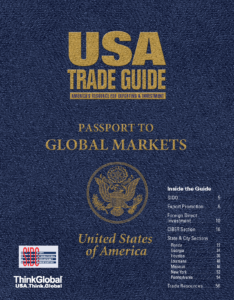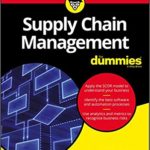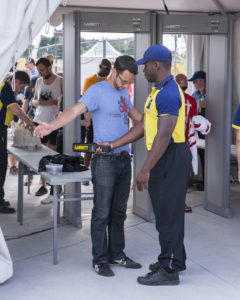
Tapping into global markets helps generate jobs and economic growth throughout the United States. According to a recent report from the U.S. Commerce Department, 95% of the world’s consumers live outside the U.S. The report, which draws on research by the Brookings Institution and the National League of Cities Center for Research & Innovation, notes that competition in today’s marketplace can be local, regional or global. The report also provides the following best practices to help local, state, and regional policymakers and business leaders develop global growth strategies.
Convene
Bring together regional and metropolitan economic leaders and assets – such as key corporations, service providers, workforce, and transportation infrastructure – to specifically identify your area’s advantages and competencies for export and investment promotion. Connect with businesses and develop strategies to better understand their needs.
Think Local
There is no one-size-fits-all approach to promoting exports and investment, and each community has unique market advantages. Identify your assets, and develop a brand. Gather local market insight and assess your industry strengths. When considering an investment attraction strategy, include operating costs, supply chain management, access to natural resources, transportation infrastructure, workforce development, access to technology, and quality of life in your assessment.
Foster Regional Collaboration
By creating a regional brand identity, and fostering collaboration, communities can successfully market themselves globally, and create effective export and investment plans.
Know Your Tools And Resources
Learn about the numerous federal, state, and local resources available on export.gov, which includes free access to tools such as the “Basic Guide to Exporting” and the “Trade Finance Guide.” For local assistance, contact your state trade office or the U.S. Commercial Service (see contact information in the resource section of this guide).
Tap into Global Markets
More than 70% of the world’s purchasing power is located outside of the United States. Successful exporters recognize that their competition may no longer be with each other, but with regions around the world.
Develop a Plan
With a regional identity and key players around the table, develop an actionable plan to promote exports and investment. The Brookings Institution has published “10 Steps to Delivering a Successful Metropolitan Export Plan,” to help business leaders take advantage of best practices and start planning.
Educate
Ensure that companies in your area know whether they have an exportable product or service and know about available resources at the federal and state level to help grow their business. Broaden the definition of exports to include activities, such as services exports, international visitors, and services to foreign students. For example, facilitate a briefing or seminar series to educate businesses about federal and state investment and export assistance resources and financing.
Improve Access to Information
One way to share up-to-date resources is to make sure that your city or regional website has a section dedicated to business assistance that provides information on opportunities and events related to exporting. Consider linking to local, state and federal trade resources.
Support Your Export Pipeline
Help identify export-ready companies and refer them to regional, state and federal assistance providers, such as the local Small Business Development Center (SBDC). For investment promotion, work with state and local government agencies, local businesses, and/or universities, to identify foreign countries and cities that may already have a relationship with your city.
Partner with Higher Education Institutions
Higher education ranks among the country’s top 10 service exports. Tuition and living expenses paid by international students and their families brought in nearly $21 billion to the U.S. economy during the 2010-2011 academic year. As a source of investment, exports, and workforce development, educational institutions should be involved in your export and investment planning discussions. Area institutions also can serve as key partners, with a strong knowledge base, research, and potential for successful internship and workforce development programs. Establish a Business-to-Business Mentorship Program Connect established exporters and investors in your area with growing businesses to share expertise and know-how in a particular market or sector. Closely affiliated with the U.S. Commercial Service, the 56 District Export Councils nationwide are organizations comprised of export leaders from their local business community.
Consider a Foreign Trade Zone
A Foreign Trade Zone (FTZ) helps encourage exports and investment by allowing delayed or reduced duty payments on foreign merchandise, as well as other savings. local governments and organizations, such as ports or economic development organizations, can apply to create an FTZ in their communities.
Organize
Consider organizing trade and investment missions to key global markets to promote your region for economic development. State trade offices and federal export promotion agencies, as well as non-profit trade organizations, often coordinate missions abroad. Globally, high-ranking U.S. federal officials, state governors and mayors are viewed favorably as top leaders representing their markets to tout its exports and its winning attributes for investment.
Build Exports and Investment into Your Broader Economic Strategy
With an eye to growth and global competitiveness, seek alignment between exports and foreign direct investment; innovation in manufacturing and services; investments in freight and logistics; and the development of a globally fluent workforce. A region’s success in the global marketplace can be enhanced with coordinated messages about trade and investment opportunities.






